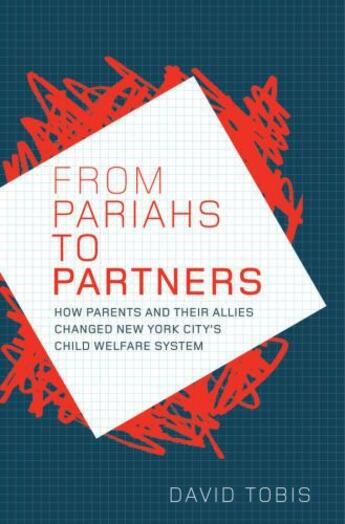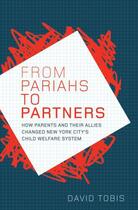-
Nombre de pages : (-)
-
Collection :
(-)
-
Genre :
(-)
-
Thème :
Non attribué
-
Prix littéraire(s) :
(-)
Résumé:
At the end of the 20th century, New York City had one of the worst child welfare systems in the United States: 50,000 children were in foster care; they and their families were often neglected or abused by the system; parents had no voice; and the services designed to protect children were more... Voir plus
At the end of the 20th century, New York City had one of the worst child welfare systems in the United States: 50,000 children were in foster care; they and their families were often neglected or abused by the system; parents had no voice; and the services designed to protect children were more often harming, rather than helping, them.
From Pariahs to Partners tells for the first time the inspiring story of the parents and their allies--child welfare commissioners, social workers, lawyers, and foundation officers--who joined together to change the system. David Tobis situates this remarkable success within the larger history of child services in the U.S., a roller coaster of alternating crisis and reform that failed to produce lasting change. But the major focus of the book is on individual parents-most of them women, many of them black or Latina, and all of them poor-who came back from the "other side" of domestic violence, drug addiction, homelessness, and poverty to fight for their rights and their children. Many of these parents recognized their own role in the wrenching experience of losing custody of their children. They entered drug treatment programs, underwent intensive counseling, left abusive relationships, got jobs, filed lawsuits, and were reunited with their sons and daughters. Some took the next step and trained to become parent organizers. Tobis shows how their efforts increased benefits for families and reduced the number of children in foster care in New York City to 15,000 in 2011.
David Tobis was a central figure in the child welfare reform movement, and From Pariahs to Partners draws on his own personal experience, as well detailed case examples from parent advocates, to tell a rare story of the triumph of individual and collective activism over bureaucratic inertia and ineptitude.
Donner votre avis















